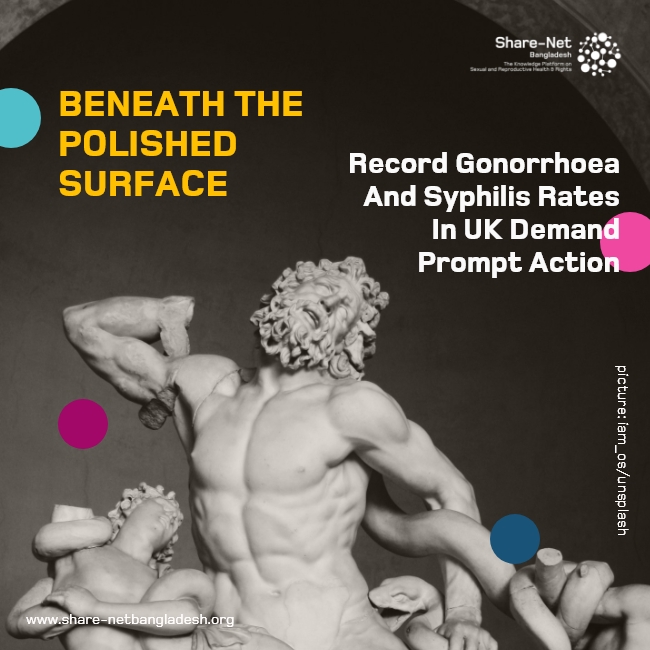Beneath the Polished Surface: Record Gonorrhoea and Syphilis Rates in UK Demand Prompt Action
“STIs can have a major impact on your health, regardless of your age, gender, or sexual orientation,” warns Dr. Hamish Mohammed, a consultant epidemiologist. The latest figures from the UK Health Security Agency (UKHSA) reveal a worrying trend: gonorrhoea diagnoses in England have surged by 7.5%, reaching a record high of 85,223 cases in 2023. This rise, coupled with a 9.4% increase in syphilis cases, highlights a pressing public health issue affecting sexual and reproductive health and rights (SRHR).
The sharp increase in sexually transmitted infections (STIs) is concerning, particularly as gonorrhoea and syphilis have more than doubled over the past decade. The UKHSA attributes part of this rise to an 8.3% increase in the number of people undergoing STI screenings. However, the data also points to a broader issue: the declining use of condoms. Sexual health experts emphasise that condoms are crucial for protecting against STIs and preventing unintended pregnancies, aligning with Sustainable Development Goals (SDGs) related to good health and well-being.
The groups most affected by the rise in STIs include 15-24-year-olds, men who have sex with men, and Black Caribbean people. Despite being a developed country, England faces significant challenges in ensuring comprehensive sexual health for all its citizens. The British Association of Sexual Health and HIV calls the rise in STIs a “concerning indicator” of the pressures on sexual-health services. Professor Matt Phillips, President of the association, underscores the need for a new strategy to secure the viability of these services, which are crucial for achieving SDGs related to health, gender equality, and reduced inequalities.
Free STI tests are available at GP surgeries, sexual health, and family planning clinics. However, experts like Clare Matthews from Brook’s clinic in Bristol report a noticeable increase in infections, especially gonorrhoea. Matthews describes chlamydia as the “bread and butter” of their clinic, but she also notes a worrying rise in cases where patients have both chlamydia and gonorrhoea. This highlights the importance of regular testing, as these infections are often symptomless.
Ruby Rare, a sex educator, emphasises the importance of condom use. She points out that many people find condoms awkward, yet they remain the only contraceptive method that also protects against STIs. Despite a slight increase in condom use this year, there has been an overall decline over the past decade. Factors contributing to this decline include the popularity of other contraceptive methods and the influence of porn, where actors rarely use condoms but undergo regular testing off-screen.
Harriet Bowman from Mesmac, a Yorkshire-based sexual health organisation, highlights another issue: the perception of protection provided by PrEP, a drug that prevents HIV transmission. While PrEP is a significant advancement in HIV prevention, it does not protect against other STIs, making condom use still essential. Bowman also stresses the importance of making condoms accessible, noting that they are available for free at many clinics, pharmacies, and colleges.
Ensuring comprehensive sexual health services is vital for public health and achieving SDGs related to health and well-being. The rise in STI cases in England underscores the need for better education on condom use and more robust sexual health services. As Ruby Rare puts it, “There’s something really empowering about feeling in control with your body and your sexual health choices.” Promoting condom use and regular STI testing are critical steps towards a healthier future for all.


